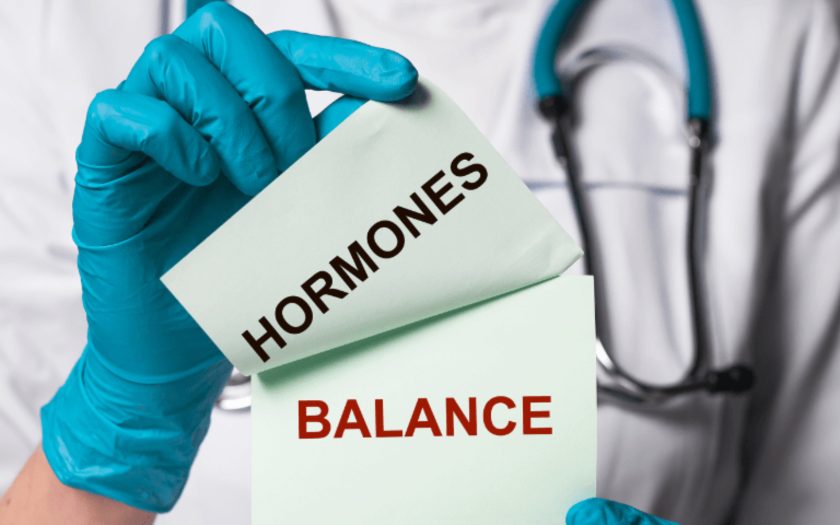-
Cyclical eating (intuitive nutrition based on menstrual phases).
This method helps to maintain hormonal balance, especially for women. Its main idea is to match your diet to the phases of your menstrual cycle, taking into account the natural fluctuations in your body’s energy, nutrient and even taste preferences. In the early days of the cycle, the body needs more warmth and iron — warm soups, stewed vegetables, buckwheat, beets, red meat, or legumes are ideal. During this phase, a gentler approach is best: reduce intense workouts, rest more, and avoid cold foods. In the follicular phase (post-menstruation), energy levels gradually rise, and the body absorbs lighter meals more easily — salads, fruits, seafood, and greens are great options. It’s also a good time to start new projects, stay active, and explore new tastes. During ovulation, metabolism ramps up, and the body needs more antioxidants and proteins — eggs, salmon, berries, and seeds work well. Cravings for protein-rich and fatty foods often increase, which is normal and shouldn’t be resisted.
-
Hugs and physical touch.
Hugging activates hormones of trust, closeness, and emotional warmth, which in turn support the endocrine system. Just 20 seconds of genuine hugs a day can stabilize your emotional state, reduce irritability, and ease feelings of loneliness. This effect is especially powerful in close relationships — such as between partners or between parents and children — where hugging stimulates not only oxytocin but also serotonin and dopamine, which elevate mood. Physical touch is also vital for those experiencing chronic stress or emotional burnout. Simple touch, massage, or even the warmth of a blanket can calm the nervous system and help maintain hormonal balance.
-
Letting yourself cry.
Tears are often seen as a sign of weakness, but in fact, crying is a powerful self-regulation tool that helps release tension and reduce stress hormone levels. When you allow yourself to cry — especially in emotional situations (pain, disappointment, sadness) — cortisol levels drop, while endorphins are released. These “feel-good” hormones soothe pain, calm the mind, and bring a sense of relief. Crying also helps flush excess stress chemicals like adrenaline and noradrenaline from the body. When these hormones accumulate over time, they can disrupt hormonal balance — leading to irregular cycles, poor sleep, mood swings, or digestive issues. Tears are a form of natural “hormone therapy” that requires no medication. Giving yourself permission to feel emotions is not weakness, but a deep form of self-care.
-
Regular body care.
When you take time to care for your body — for example, taking a warm bath, applying lotion, doing self-massage, or performing aroma rituals — your parasympathetic nervous system is activated. This system is responsible for rest and recovery, and its activation naturally lowers stress hormone levels while boosting the production of feel-good hormones. In addition, body care is a way to focus on the moment and take your time. Feeling textures, temperatures, scents, and bodily sensations helps you reconnect with your needs, which is essential for regulating hormones — especially those related to energy, appetite, and mood (like insulin, ghrelin, and leptin). For example, an evening ritual such as a shower with aromatic oils followed by gentle self-massage with cream can ease nervous tension and prepare the body for restorative sleep. Regular body care signals to the brain that you are safe, which allows your hormonal system to function in harmony.
-
Learning to say no without guilt.
Numerous studies show that when you constantly say ‘yes’ even when you want to say ‘no’, the body perceives it as chronic stress. Prolonged stress leads to adrenal fatigue, elevated cortisol, hormonal imbalance, and emotional burnout. Every forced consent that contradicts the inner desire is a microtrauma for the nervous system. The brain reacts as if you’re in danger, triggering physical defense mechanisms — muscle tension, a racing heart, thyroid changes, or sleep disruption. Learning to say no is not selfish — it’s an essential form of self-care. When you start listening to yourself, your hormonal system begins to stabilize: cortisol levels drop, mood evens out, and food cravings become less erratic.
-
Listening to music you love.
Favorite tunes can influence brain chemistry just as effectively as meditation or exercise. When listening to your favourite music that evokes joy, inspiration, nostalgia or calmness, the brain begins to actively produce dopamine, which helps you feel energised, motivated and happy. At the same time, cortisol levels decrease, which is crucial for those experiencing chronic stress or emotional fatigue. Music also stimulates serotonin — the mood-regulating hormone that impacts emotional balance, appetite, and sleep. For example, soothing instrumental music or nature sounds can help you fall asleep, while upbeat songs are great for working out. Listening to music during moments of emotional tension or exhaustion can be particularly helpful. So, include your favorite tracks in daily routines — in the morning, on your commute, in the shower, or before bed. Music that resonates with you not only lifts your mood but also supports deep hormonal processes that affect both physical health and emotional balance.
Regularly incorporating these simple methods to support hormonal balance can gently help regulate hormone levels, stabilize mood, and boost overall energy. However, it’s important to remember that if you’ve been diagnosed with a hormonal disorder such as hypothyroidism, these approaches should complement — not replace — medical treatment. In such cases, taking prescribed medications (such as Thyronorm, Tiromel, or Thyro3) is essential to prevent complications and maintain the stable functioning of the endocrine system.

